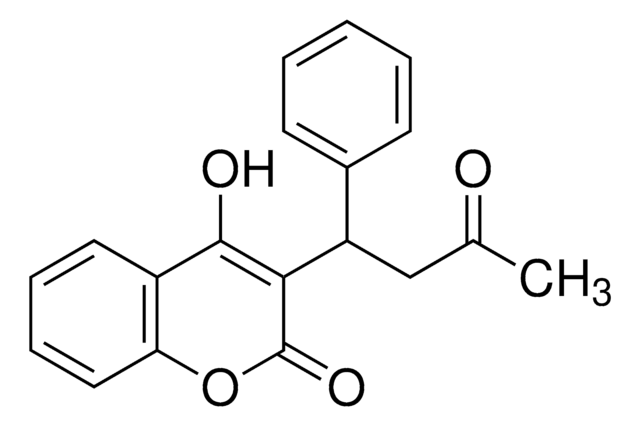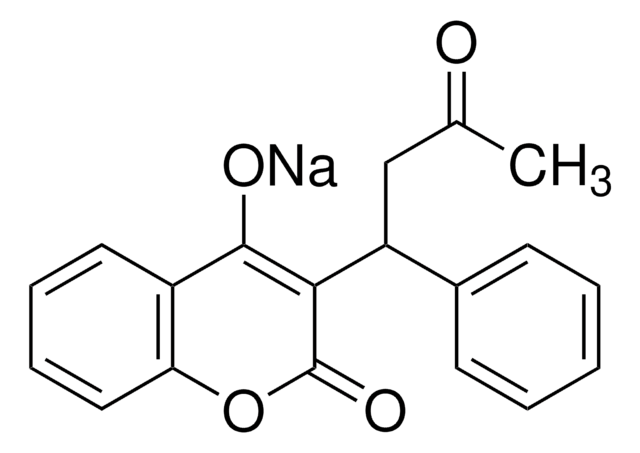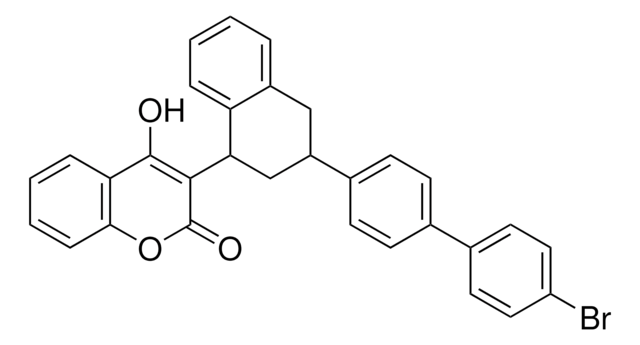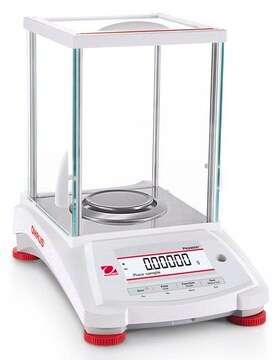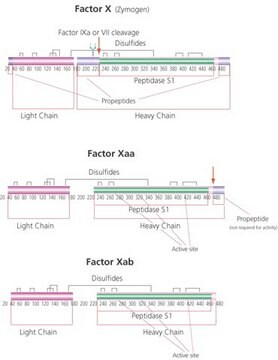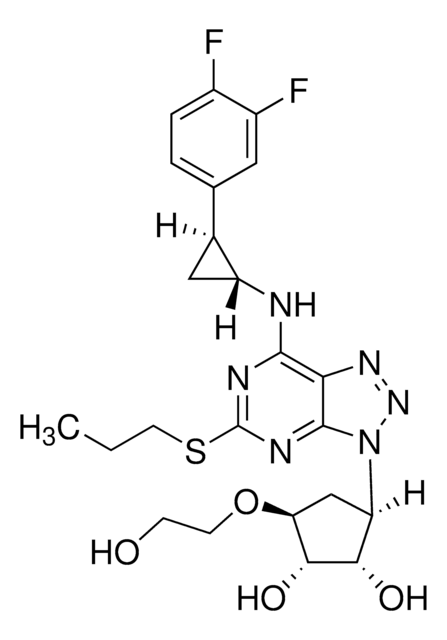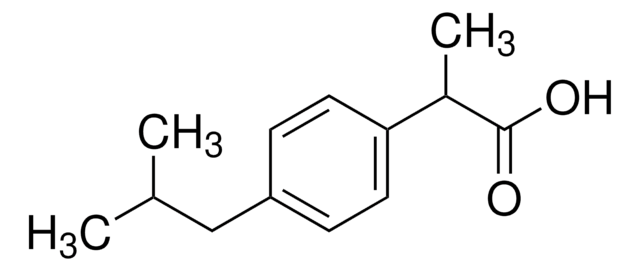1719000
USP
Warfarin
United States Pharmacopeia (USP) Reference Standard
Synonym(s):
4-Hydroxy-3-(3-oxo-1-phenylbutyl)coumarin, Coumafene
About This Item
Recommended Products
grade
pharmaceutical primary standard
API family
warfarin
manufacturer/tradename
USP
mp
162-164 °C (lit.)
application(s)
pharmaceutical (small molecule)
format
neat
storage temp.
2-8°C
SMILES string
CC(=O)CC(c1ccccc1)C2=C(O)c3ccccc3OC2=O
InChI
1S/C19H16O4/c1-12(20)11-15(13-7-3-2-4-8-13)17-18(21)14-9-5-6-10-16(14)23-19(17)22/h2-10,15,21H,11H2,1H3
InChI key
PJVWKTKQMONHTI-UHFFFAOYSA-N
Gene Information
human ... VKORC1(79001)
Looking for similar products? Visit Product Comparison Guide
General description
Application
- Warfarin Sodium
- Warfarin Sodium Tablets
- Warfarin Sodium for Injection
Analysis Note
Other Notes
Legal Information
Signal Word
Danger
Hazard Statements
Precautionary Statements
Hazard Classifications
Acute Tox. 1 Dermal - Acute Tox. 1 Inhalation - Acute Tox. 2 Oral - Aquatic Chronic 2 - Repr. 1A - STOT RE 1 Oral
Target Organs
Blood
Storage Class Code
6.1A - Combustible acute toxic Cat. 1 and 2 / very toxic hazardous materials
WGK
WGK 3
Flash Point(F)
Not applicable
Flash Point(C)
Not applicable
Certificates of Analysis (COA)
Search for Certificates of Analysis (COA) by entering the products Lot/Batch Number. Lot and Batch Numbers can be found on a product’s label following the words ‘Lot’ or ‘Batch’.
Already Own This Product?
Find documentation for the products that you have recently purchased in the Document Library.
Customers Also Viewed
Our team of scientists has experience in all areas of research including Life Science, Material Science, Chemical Synthesis, Chromatography, Analytical and many others.
Contact Technical Service